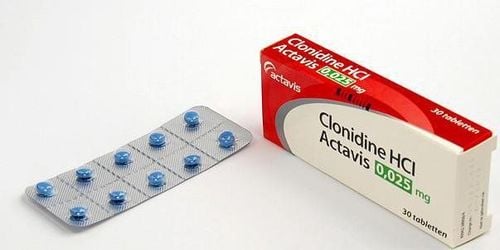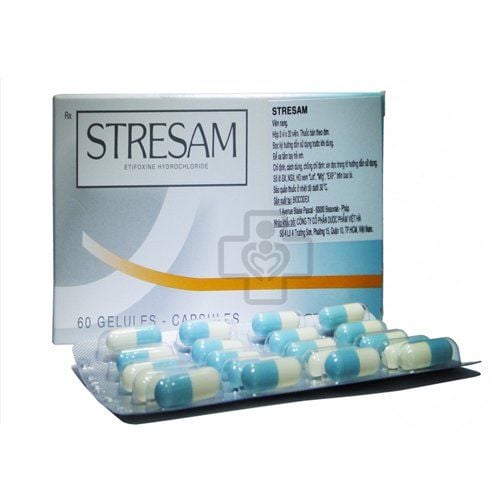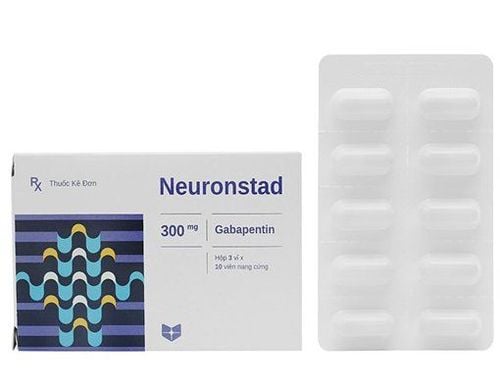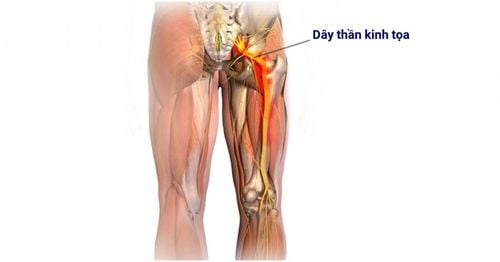This is an automatically translated article.
Di - angesic is an analgesic with the ability to quickly control pain thanks to its paracetamol component. As a result, the drug also limits the risk of high fever for people with pain in the parts due to health factors or physical trauma.
1. Who should and should not use Di angesic 30
Di Angesic can treat pain caused by injury or pain caused by stress. The pain caused by a health problem reaching grade II will be prescribed to use the drug: angina pectoris, persistent generalized dull pain, pain around the temples or the entire head area, muscle pain, neuralgia sciatica, pain due to cancer growth, toothache, pain caused by physical trauma.
In some cases where the body appears pain due to internal or external forces accompanied by high fever, medication will be indicated. Some problems that require the use of peripheral analgesics will also be indicated with this medicine.
According to clinical analysis, patients with hypersensitivity to the components of the drug should not be treated. Patients with impaired liver or on treatment will not be able to use Di angelesic . Pregnant or lactating women and children under 12 years old should be careful, because this group of subjects is contraindicated.
In addition, people with a history or current conditions such as asthma, respiratory failure or impaired glucose 6 phosphate dehydrogenase are also studied and analyzed as contraindications. People who regularly use alcoholic beverages cannot take the drug. Patients with recent tonsillectomy or VA curettage are also on the list of contraindications.
2. Detected side effects and interactions of Di angesic
When using drugs, unwanted reactions can affect many authorities.
Digestive system: constipation Nervous system: craving for sleep, pain around the head, feeling always thirsty and changing perception with life environment. The drug also has the risk of increasing intracranial pressure or causing severe head injury. Urinary system: difficulty urinating or urinary retention Respiratory system: a few experiments have found that the drug causes respiratory depression or bronchospasm Circulatory system: decreased platelet and white blood cell counts even reduced erythrocytes. When unfortunately sharing di angesic medicine with other pain relievers will affect the effectiveness of the drug. Visceral organs: liver is the organ that suffers the most from prolonged use of high doses of the drug Health reactions: dizziness, lightheadedness and nausea may be accompanied by an allergic skin rash. Stress relievers that relax or inhibit the nervous system when used may cause the body to lose its therapeutic effect. If the dose is not balanced or the appropriate medication is changed, it will lead to drug resistance and worsening of the condition. Especially addictive alcoholic beverages when reacting with drugs will produce dangerous toxicity.
Each prescribed dose should be considered not to exceed 2 weeks. Patients taking more than 2 weeks will weaken liver and kidney function. At the same time, long-term pain relievers will make the body dependent and difficult to quit or the pain will increase more when there is no longer the control of the drug.
During the process of using the drug, it is necessary to pay close attention to health problems. When the effect of the drug is not enough to relieve the pain or causes widespread pain, it is advisable to notify the doctor to conduct an examination. In some cases, the patient's body interacts with the drug, which can lead to stevens johnson syndrome or toxicity leading to skin necrosis. Others will develop Lyell's syndrome or a severe full body rash.
3. Notes on dosage and how to handle if not using the prescribed dose
The drug is not restricted to use before or after meals, but it's best to make sure you don't take it on an empty stomach. Children under 12 years of age should only use this medicine with the approval of a doctor, because the risk of drug addiction affecting the nervous system at this age will be dangerous leading to drug dependence or impaired concentration and intelligence. smart later.
Most doses are prescribed from doctors based on the actual condition of the patient. However, you can refer to the manufacturer's prescribing instructions for a minimum or maximum dose for each age group.
Children from 6 to 12 years old will take half a tablet each time and use 2-3 times depending on the condition. Adults and children over 12 years old can take 1-2 tablets and no more than 8 tablets per day. This dosage is for reference only and each time of use, ensure the interval from 6 hours to ensure the drug is fully absorbed.
The clinical risk of overdose is often difficult to accurately predict. So if you accidentally take more than the prescribed dose, you need to notify your doctor and go to the hospital for a checkup as soon as possible to determine the risk early.
Di Angesic 30 can be used to relieve pain, but if abused, it will be dangerous for the body. Mild levels of drug addiction can cause body fatigue and disrupt the function of internal organs. Therefore, you need to use the drug under the supervision of your doctor and carefully check the drug interactions to ensure safety for your health.
Please dial HOTLINE for more information or register for an appointment HERE. Download MyVinmec app to make appointments faster and to manage your bookings easily.













